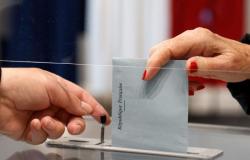In 2024, the Global Gender Gap 2024 Report highlights Morocco for its progress and challenges in promoting gender equality. Although the country has made progress in technical and professional roles, with parity exceeding 70%, it still faces significant obstacles in economic parity and political empowerment. In terms of overall performance, Morocco ranks seventh in the highest regional score with 43.1%. The report also highlights the efforts needed to strengthen equitable access to resources and opportunities for women.
In the 18th edition of the “Global Gender Gap 2024” report, particularly in the “Global Results” section, it is revealed that European economies dominate the global top 10, occupying seven places. The other three positions are held by economies from East Asia and the Pacific (New Zealand, 4th), Latin America and the Caribbean (Nicaragua, 6th) and Sub-Saharan Africa (Namibia, 8th). Although no country has reached full parity, the top nine countries (Iceland, Finland, Norway, New Zealand, Sweden, Nicaragua, Germany, Namibia and Ireland) have closed at least 80% of their gender gap.
Globally, the second largest gap to be closed is in economic participation and opportunity. Countries included in the 2024 Index are not progressing toward economic parity uniformly, as the distribution of scores suggests. About 24% of the sample has parity scores below the weighted global average for this subindex.
Read also: Gender equality: “Global Gender Gap” 2024 examines the obstacles to gender gaps
The case of Morocco
Despite progress on the new Moudawana reform, Morocco is among the bottom ten countries this year, the country records one of the lowest levels of economic parity, with only 40.6% parity between the sexes. Morocco is also one of the economies where gender parity in estimated labor income is less than 30%, and the labor force participation rate is less than 50%.
The report assessed several indicators: Economic Participation and Opportunity, Educational Attainment, Health and Survival, and Political Empowerment. It also looks at the overall performance of the 146 economies included in the 2024 index and analyzes the different indicators that determine the overall average gender gap score. For this indicator, Morocco obtains the seventh highest regional score with 43.1%. This represents an increase of +1.8 percentage points compared to last year and an improvement of +3.1 percentage points since 2006.
Concerning economic parity, Morocco is one of the economies with the lowest levels of parity. Challenges persist in the country to ensure equitable access to resources, opportunities and decision-making positions for women.
In the “Performance by region” section, Morocco stands out for its gender parity in technical and professional functions which exceeds 70%, placing it among the regional leaders in this area. In addition, the country has a parity higher than the global average (40.5%) for women in legislative, management and management positions.
Despite these advances, gender parity in the labor force participation rate remains low compared to other regions. Nevertheless, the representation of women in the workforce is showing signs.






